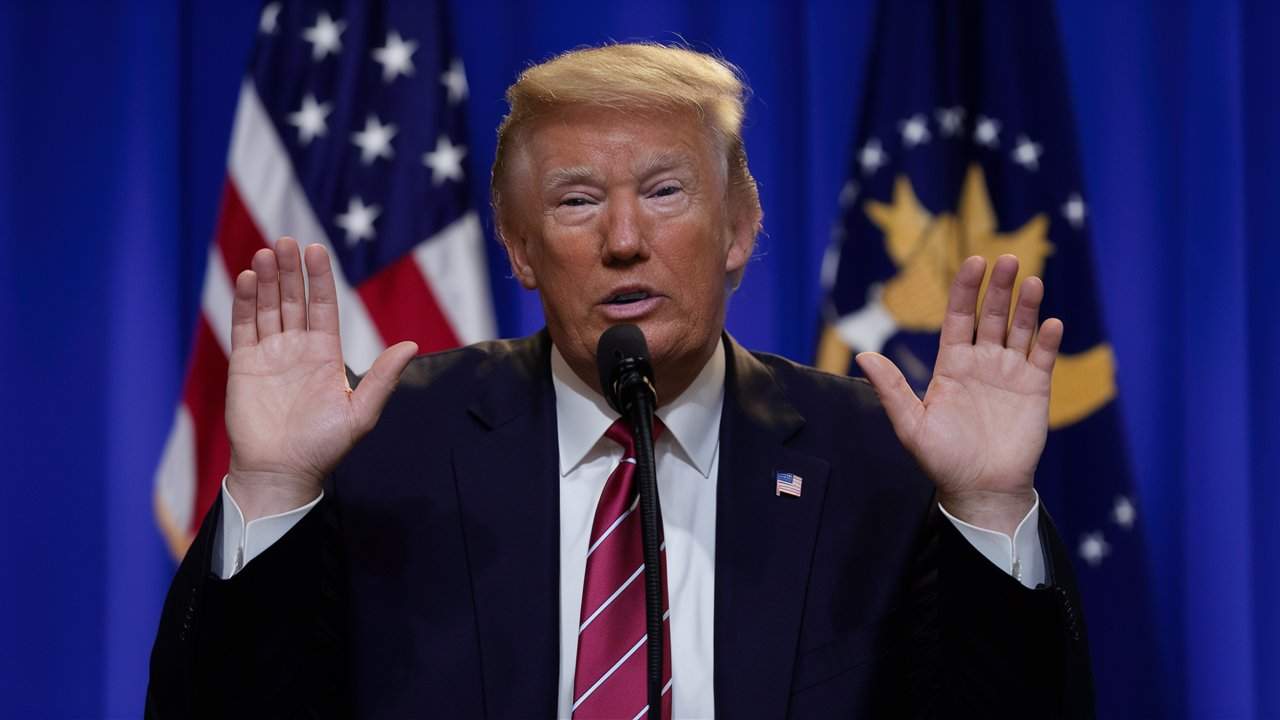
The idea of using cryptocurrency, especially Bitcoin, to tackle national economic challenges has gained support from leaders and policymakers. Former President Donald Trump proposed a $35 trillion Bitcoin check as a potential solution to the United States’ growing debt. This intriguing idea has sparked discussions about the viability and implications of including cryptocurrencies in national fiscal strategies.
Can Bitcoin Rescue the U.S. Economy?
During a recent Fox News interview with Maria Bartiromo, former President Donald Trump proposed using Bitcoin to address the $35 trillion national debt.
As the U.S. government increases the money supply to manage existing debts, Bitcoin’s value has been rising alongside the dollar.
To understand the national debt’s trajectory, it took around 200 years for the U.S. to accumulate $1 trillion in debt.
However, today the country adds about $1 trillion every three months due to ongoing deficit spending.
Presently, approximately 76% of income tax revenue is allocated to servicing the national debt, making interest payments a significant concern in the budget.
“Who knows, perhaps we could settle our $35 trillion national debt with a crypto cheque,” Trump commented, highlighting Bitcoin’s potential.
He emphasized Bitcoin’s limited supply and blockchain technology as a way to address U.S. dollar inflation.
“We’ll give them some Bitcoin and clear our $35 trillion,” Trump suggested, implying cryptocurrency’s ability to stabilize the economy.
The U.S. national debt currently exceeds $31 trillion, leading to calls for innovative solutions to prevent an economic downturn.
Trump’s suggestion of a $35 trillion Bitcoin cheque aims to leverage cryptocurrency’s decentralized nature and global acceptance.
He views it as a tool for stabilizing the national economy.
By shifting value from the depreciating dollar to a finite digital asset, Bitcoin offers a possible remedy for economic instability.
It might prevent a catastrophic currency collapse similar to the Weimar Republic’s in the early 1900s.
A similar opinion was recently voiced by Robert F. Kennedy Jr., who suggested a Bitcoin reserve could help reduce national debt.
He argued that when Bitcoin’s value rises, a reserve may aid in lessening the national debt.
Furthermore, Senator Cynthia Lummis has proposed legislation to establish a strategic reserve for Bitcoin. Her measure would require the U.S. Treasury to hold onto 5% of the whole Bitcoin supply for at least 20 years after it is acquired.
This reserve would help maintain American financial dominance in international markets and act as a buffer against excessive money printing.
Trump’s proposal for Bitcoin and Lummis’ strategic reserve plan shows growing confidence in cryptocurrencies’ ability to stabilize the economy.
They believe cryptocurrencies can boost the American economy despite persistent budgetary challenges.
The concept of using cryptocurrency to address national debt is not entirely new, as some countries have already adopted it.
For example, countries like El Salvador have experimented with Bitcoin as a legal tender to enhance financial inclusion and stimulate growth.
Also read: Which African Country Has the Best Blockchain Technology?
Discover more from The African Crypto
Subscribe to get the latest posts sent to your email.








